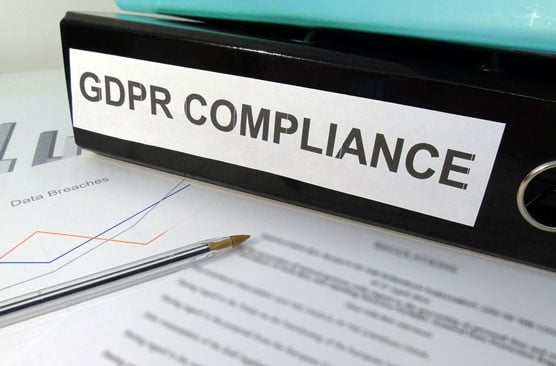

One aim of the General Data Protection Regulation (GDPR), which came into effect on May 25, 2018, was to harmonize data protection laws across Europe — so its legal form is a regulation (an order that must be executed) as opposed to a directive (a result to achieve, though the means to achieve aren’t dictated).
The GDPR is the successor to the European Union's (EU) Data Protection Directive 1995 (Directive 95/46/EC). Unlike a directive, when the EU enacts a regulation, it becomes national legislation in each EU member state, with member states having no opportunity to change it via national legislation.
However, EU member states are permitted to make certain derogations (a fancy term for exemptions) from the GDPR (such as in the case of the need to uphold a country’s security), so data protection laws across Europe aren’t quite as harmonized as may have been desired by some of the legislators.
Although EU member states cannot change the GDPR, each member state requires national legislation to accompany the GDPR, for two reasons:

©SB_photos/Shutterstock.com
Data protection laws exist to balance the rights of individuals to privacy and the ability of organizations to use data for the purposes of their business. Data protection laws provide important rights for data subjects and for the enforcement of such rights.
This list describes a handful of additional points about these laws to keep in mind. Data protection laws:
| Type of Regulation/Enforcement | Countries |
| Tough | Australia, Canada, Hong Kong, South Korea |
| Strong | Argentina, China, Estonia, Finland, Iceland, Japan, Latvia, Malaysia, Monaco, Morocco, New Zealand |
| Light | Angola, Belarus, Costa Rica, Egypt, Ghana, Lithuania, Mexico, Nigeria, Russia, Saudi Arabia/UAE, South Africa, Turkey, Ukraine |
| Limited | Honduras, India, Indonesia, Pakistan, Panama, Thailand, Uruguay |
Think of this as a description of not only the consequences you face if you aren’t compliant with the GDPR but also the reasons you should care about being compliant.
Under the GDPR, the fine for certain breaches of the GDPR have been increased to 20 million euros (about $24 million USD) or 4 percent of global turnover for the past financial year, whichever is higher. For “lesser” breaches, the maximum fines have increased to 10 million euros (about $12 million USD) or 2 percent of global turnover for the past financial year, whichever is higher.
This significant increase in fines indicates the increasing importance of data protection within the EU as the value of personal data increases and the processing becomes even more sophisticated.
This is not to say that you will be fined these amounts for any infringements of the GDPR. You would have to do something that significantly impacts on the rights and freedoms of a large number of data subjects to incur a maximum fine.
Supervisory authorities are the regulatory authorities (often known as data protection authorities) within individual EU member states that are responsible for the enforcement of the GDPR.
Data subjects can now bring civil claims against data controllers for infringements of their data subject rights. So, if, for example, you don’t respond appropriately to a data subject right request (namely where the data subject can request details of the personal data you process for that data subject) or if you experience a data breach that affects the data subject’s personal data, you could find yourself on the receiving end of a civil claim.
As you may have noticed in recent high-profile data breaches, such as the British Airways data breach in 2019, data protection lawyers are placing advertisements encouraging victims of data breaches to join group actions against the data controller.
A civil claim against you would not only damage your reputation further but would also cost a significant amount of time and money to defend the claim.
When a data subject brings a claim against you, you risk not only sanctions from the relevant supervisory but also brand damage. A report by Axciom (a consulting firm providing marketers with data and technology assistance) entitled “Global data privacy: what the consumer really thinks” showed that individuals from around the world are, in the vast majority, quite concerned about how their personal data is used and protected. If you aren’t compliant with the GDPR, you’re showing your prospects, customers, and employees that you aren’t concerned about the protection of their personal data.
If you don’t comply with the GDPR and, for example, you experience a data breach or don’t respond appropriately to data subject requests, you are likely to lose trust from your customers and prospects. When they don’t trust you, they don’t want to buy from you or otherwise do business with you. Similarly, when your employees don’t trust you, they no longer want to work for you.
In unfortunate timing, British Airways sent an email to all of its customers to assure them that they could trust British Airways with their personal data. Just a couple of months later, British Airways suffered a large data breach that compromised the financial details of 185,000 customers, details that were sold on the dark web. As a result of this data breach, the share price of IAG (British Airways’ parent company) decreased by 5.8 percent (equivalent to a loss of £350m).
In 2018, CompariTech carried out a report finding that, in the long term, organizations that have suffered data breaches financially underperformed.
By embracing the GDPR and showing your customers, prospects, and employees that you care about the protection of their personal data, you gain a competitive advantage.
Elizabeth Denham, the United Kingdom information commissioner, summed up this idea nicely:
“Accountability encourages an upfront investment in privacy fundamentals, but it offers a payoff down the line, not just in better legal compliance, but a competitive edge. We believe there is a real opportunity for organisations to present themselves on the basis of how they respect the privacy of individuals and over time this can play more of a role in consumer choice.”
Suzanne Dibble is a business lawyer who has advised huge multi-national corporations, private equity-backed enterprises, and household names. Since 2010 she has focused on small businesses, combining her knowledge of large organizations with a deep appreciation for entrepreneurship, especially online businesses, to provide practical, relevant advice. See more at suzannedibble.com